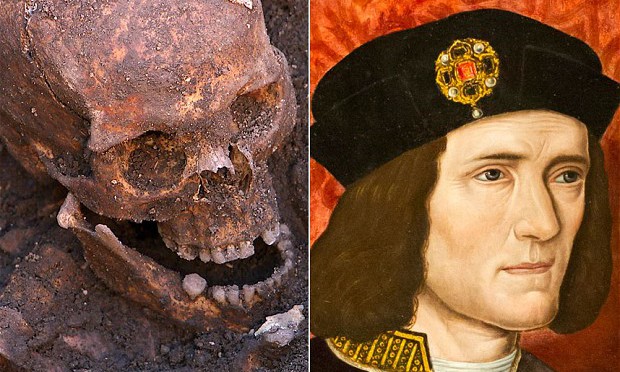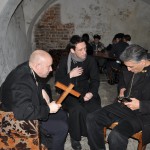I took part in a live-action role play a couple of weeks ago, called Inside Hamlet at Kronborg castle in Denmark. It was set in the 1930s, giving a whole new spin to Shakespeare’s tale. I learnt a massive amount about what history means by acting it out (as a Lutheran exorcist priest).
And this evening I’m watching #RichardReburied on Channel 4, a live programme following the return of the bones of Richard III to his reburial next week in Leicester Cathedral. History made live. What I really like about this coverage is that it’s run as a news event – presented by Jon Snow, with expert scientists, academics, novelists and descendants of Richard III (including an Australian called Wendy Duldig who came over for the event and is Richard’s 14th cousin)
Channel 4 got a very good audience for the original film – The King in the Car Park – three years ago.
But it’s been a great programming idea to make his reburial into a new TV event. Well done to John Hay, the commissioner of the live event, & Darlow Smithson Productions, who also produced the original doc. For making us realise that the identity of a 500 year old king matters.
History has significance – both for our understanding of what happened then, and for what might happen. And in an election year in the UK, that’s very important.
Channel 4 (them again) did a terrific season of programmes on immigration, including Love Productions’ Immigration Street – reduced to a single documentary after certain parts of the community decided they didn’t want it made – and other programmes. One of them was a doc made by Malcolm Brinkworth of Touch Films about an election in 1964 – which took place on the immigration faultline. Immigration will be one of the key issues of the UK General Election.
History is a big part of SBS programming, but making it relevant and watchable is what matters to the audience. I must say that I haven’t been watching many of the films about the First World War. And in Australia, the Gallipoli drama series on Channel 9 hasn’t been getting the audiences the programme merited. This extended trailer shows that it’s a really sensitive and moving piece of work – well worth 3 minutes of your time.
History, and the lessons of the past, are so crucial to understand today. I for one am really proud of the television that brings it to life for us.
Any comments, questions, responses, ideas – all really welcome







